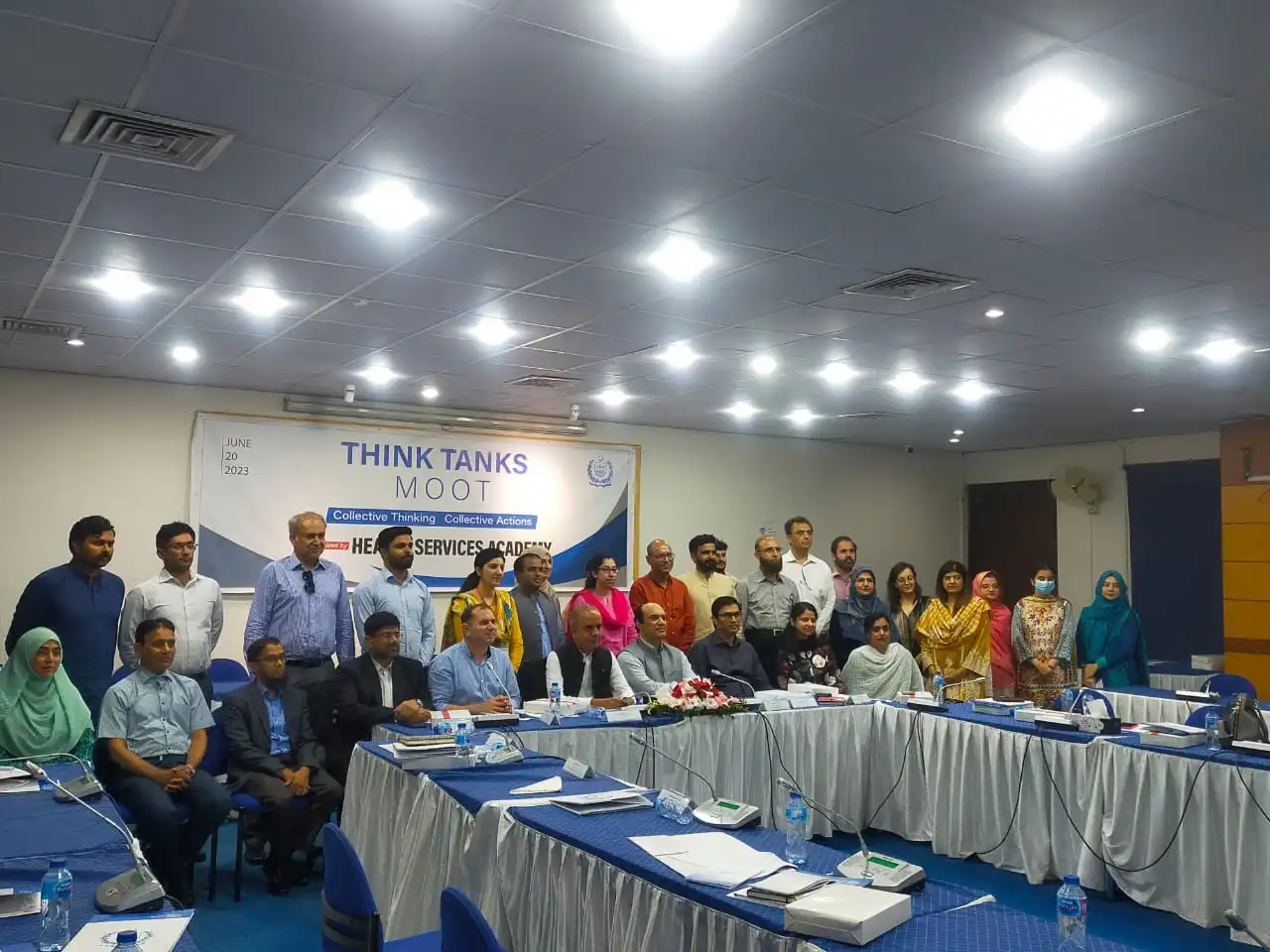HSA organize a Moot on Healthcare Financing in Pakistan
By: Omed Hajjana
Islamabad: Health Services Academy Islamabad (HSA) has organized the 2nd Think Tank Moot with a focus on Healthcare Financing in Pakistan, organized on Tuesday where the experts stressed on proper utilization of funds allocated in the budget.
They have also stressed setting up effective monitoring and accountability mechanisms for these PPPs.
Minister of State for National Health Services Regulations and Coordination Mahesh Kumar Malani was the guest of honor.
He said that the only solution to tackle all the issues related to public healthcare facilities is to educate and inform the masses in rural areas regarding public healthcare facilities.
He highlighted the issue of inadequate human workforce, particularly in rural areas at the BHU, and RHC levels.
Minister emphasized the effective advocacy drive in rural areas for the provision of better healthcare facilities to the marginalized community.
He asked the moot participants and urged the media to play their vital role in strengthening the healthcare system of Pakistan.
Health experts addressed the participants to convene stakeholders from various think tanks, government organizations, and universities, fostering collaboration to generate innovative ideas for enhancing the healthcare sector in Pakistan.
Vice-Chancellor of the Health Services Academy (HSA) Dr. Shahzad Ali Khan extended a warm welcome to all the participants and provided an overview of HSA’s contributions in the field of healthcare financing.
He said that HSA would organize a series of informative presentations on various topics, including the status of healthcare financing in Pakistan, Public Finance Management, Strategic Purchasing, and Social Health Protection in Pakistan.
Dr. Nadeem ul Haque, Vice Chancellor of PIDE, said that the presence of 300 universities and 100 think tanks should ideally lead to original and innovative ideas.
However, he voiced concerns over the current practice involving copying ideas from donors, saying they are not conducive to the national economy.
He also pointed out the country’s growth numbers that have become negative for the first time, posing a serious challenge for the country.
Dr. Tariq Ali, Registrar of HSA, provided an overview of the Health Care Financing situation in Pakistan.
He pointed out the public sector’s significant role in healthcare financing, which was mainly through government budgets and subsidies.
He added that several key points are mandatory including Public Sector Funding, Out-of-Pocket Payments, Social Health Insurance, and Private Health Insurance for betterment of Health Care Financing in Pakistan.
Moreover, he said that HSA proposed some strategies like Increased Government Investments, Strengthening Social Health Insurance, Innovative Financing Mechanisms, and Monitoring and Evaluation to the participants for consideration and deliberations.
However, Health Experts emphasized that the allocated funds for healthcare are inadequate, resulting in resource limitations and limited-service coverage. It was further mentioned that out of the total health expenditure, 59.4% is covered by the private sector, 40% by the public sector, and 0.6% by donor agencies.
Speaking at the concluding session, several key points have emerged from our fruitful discussions. Firstly, Public-Private Partnership (PPP) is vital for ensuring the sustainability of healthcare services, as the government alone cannot provide all necessary facilities.
They said that it was critical to set up effective monitoring and accountability mechanisms for these PPPs.
Secondly, there is a pressing need to address the growing demand for healthcare services and prioritize strategies to meet this demand. Lastly, they stressed the proper utilization of allocated resources in the budget.
Moreover, they said that we do not have a health policy in Pakistan.HSA Starts Training Workshops To Improve Health System
It was stressed to develop a framework that ensures the autonomy of private hospitals and addresses the distribution of finances.
It is necessary to develop a market that enables the effective implementation of the co-payment formula.
The event ended with a commitment from all participants to share their thoughts and ideas via email, towards the development of a policy document that reflects a collective resolution.








